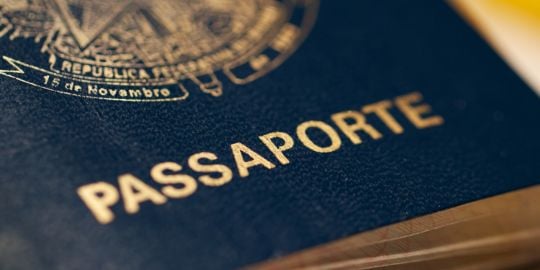who's going through the naturalization process? i am and i have a question.....i have all the necessary documents required hence there is the need for a police clearance from my country of origin, i know i can get that through the consulate here, however that police clearance needs to be legalized at the brazilian embassy in my country of origin, currently i have some activities from school that in the way of me travelling, anybody knows of any other way to get this done? is it a super obligation? can i just use the police clearance without legalizing it? please share your story.
THANKS!
Naturalization Process
On 2 December 2015, Brazil deposited its instrument of
accession to the Hague Convention of 5 October 1961
Abolishing the Requirement of Legalisation for Foreign
Public Documents (the "Apostille Convention"). On 29
January 2016, the text of the Convention was
internalized in Brazil by the Decree No. 8660, and its
implementation has been regulated by the Resolution nº
228/2016, issued by the National Council of Justice.
According to the provisions of the Convention, the
instrument will take effect in Brazil as of 14 August
2016.
2. Brazil's accession to the Apostille Convention will
entail great simplification in the authentication of
Brazilian documents intended to take effect abroad and
of foreign documents to take effect in Brazil,
providing noticeable reduction in time processing and
costs born by individuals and companies, as well as
enable a more efficient use of public resources
currently employed in the legalisation of documents in
Brazil and abroad.
3. Currently, the authentication of Brazilian
documents to take effect abroad is subject to a
cumbersome multi-step process ("legalisation chain"),
which requires the documents to be legalised by
various government authorities, and as the last stage
by the diplomatic or consular mission of the country
where the document is to take effect. Likewise, a
foreign document to take effect in Brazil must be
previously legalised by the Brazilian diplomatic or
consular mission that holds consular jurisdiction over
the country where it has been issued.
4. According to the process established by the
Apostille Convention, Brazilian documents certified by
an Apostille shall take effect in all States Parties
to the Convention. Similarly, foreign documents with
Apostilles issued by one of the States Parties to the
Convention shall take effect in Brazil, abolishing the
requirement for the legalisation by the Brazilian
Consular Service.
5. In view of the interest of the Brazilian Government
that the service for issuing apostilles be provided in
the most convenient and efficient manner to the
applicants, the Brazilian network of notaries and
registries have been designated competent authorities
to issue the Apostille certificate. Notaries and
registries in Brazil are widely spread throughout the
Brazilian territory, already have expertise in the
authentication of signatures and are electronically
integrated. The Brazilian Judicial authorities will
also be competent to issue apostilles regarding
judicial documents.
6. The Brazilian judiciary has developed a system for
the processing of apostilles ("SEI Apostila") to be
used by the competent authorities throughout Brazil.
The Brazilian system is endowed with a high level of
security and is prepared for the future implementation
of totally electronic apostille ("e-Apostille").
7. The authenticity of the Brazilian apostilles can be
verified by scanning a QR code or entering the
alphanumeric code displayed on the Apostille on the
webpage of the National Council of Justice:
Source : https://www.hcch.net/en/news-archive/de … revent=446
This information is for authentication of documents and not legalization. Well thanks anyways but I was informed by the federal police that the police clearance needs to be legalized at the consulate then translated.
Here's a link showing the differences between the two. https://www.alscanada.ca/the-difference … alization/
Hey I didn't legalize ..still they accept. . i just reconcement and they accept too .
Really? The registration office here does the legalization process too but the federal officer told me that it can only be done in my country of origin because the services offered by the apostles here is for Brazilian documents that will be used abroad. I'm so frustrated and confused, hence i'm not getting accurate information. Tell me how you did yours.
Sorry to hijack this thread a little. How long does the process take once all the paperwork & leagalisations have been completed successfully.
Here in my city it takes the longest as in 5 months
Due to Hague Convention, the apostille is workable here in Brazil if your country was member of that convention.
After the paperwork, you would be called for a Portuguese exam. And after that, you will have to wait untill your process is finalized.
Yes but my doubt is......can I use the Brazilian apostolic service to legalize my foreign document?
Of course, if your country is a member of that convention.
Thanks
here is new DECRETO Nº 9.199, DE 20 DE NOVEMBRO DE 2017
Regulamenta a Lei no 13.445, de 24 de maio de 2017, que institui a Lei de Migração.
http://www.planalto.gov.br/ccivil_03/_a … /D9199.htm
List of documents for naturilization
http://www.justica.gov.br/central-de-at … ionalidade
Quais são os documentos necessários para solicitar esses serviços?
Naturalização Ordinária
Requerimento devidamente assinado pelo naturalizando;
Declaração de interesse em traduzir ou adaptar o nome à língua portuguesa;
Certidão ou inscrição consular, emitida pela Embaixada ou Consulado no Brasil, comprovando a correta grafia do nome do interessado e de seus genitores;
Cópia da cédula de identidade para estrangeiro permanente atualizada;
Cópia do CPF ou cópia do recibo de entrega da última declaração de imposto de renda (pessoa física);
Comprovante de recolhimento da taxa (guia GRU) referente ao pedido de naturalização;
Atestado de antecedentes criminais expedido pela Polícia Civil dos Estados onde residiu nos últimos cinco anos;
Certidão negativa de ações criminais da Justiça Federal dos Estados onde residiu nos últimos cinco anos;
Certidão dos cartórios de distribuição de ações criminais das comarcas onde residiu nos últimos cinco anos;
Atestado de antecedentes criminais expedido pelo país de origem, legalizado junto à repartição consular brasileira e traduzido, no Brasil, por tradutor público Juramentado ou devidamente inscrito na Junta Comercial;
Comprovante de residência, tais como: contas de água ou energia ou telefone, bem como através de cópia de contrato de locação ou escritura de compra e venda de imóvel onde reside ou residiu no período imediatamente anterior ao pedido de naturalização, ou de genitor ou cônjuge ou companheiro, acompanhado respectivamente da certidão de nascimento, ou casamento, ou comprovação de união estável;
Cópia na íntegra do passaporte, observando as normas que regem o Mercosul;
Cópia da certidão de casamento;
Cópia da certidão de nascimento do filho brasileiro;
Documento comprobatório de renda, tais como: cópia autenticada da íntegra da Carteira de Trabalho e Previdência Social - CTPS, cópia autenticada do contrato de trabalho; cópia autenticada dos últimos três contracheques; cópia autenticada do Contrato Social consolidado da empresa da qual é sócio ou cotista; escritura pública declaratória de renda lavrada nos tabelionatos de notas; cópia autenticada do cartão do Imposto Sobre Serviços - ISS; comprovante de seu recolhimento ou RPA (Recibo de pagamento a autônomo).









